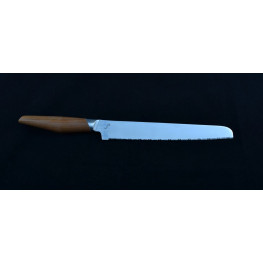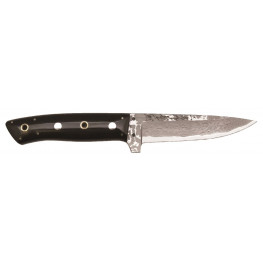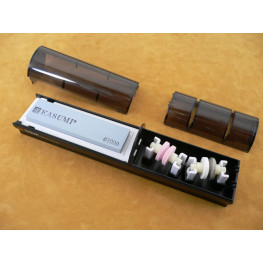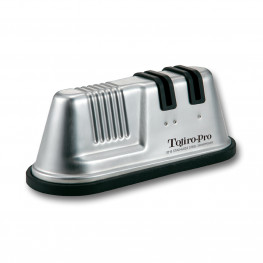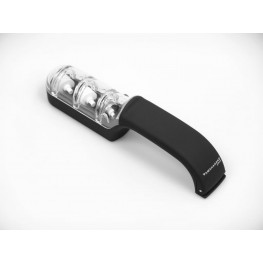Product detail
Japanese whetstones are the most suitable for sharpening Japanese knives. However, the situation or time does not always make this choice possible and we are forced to use an alternative solution. And here come the irreplaceable helpers - sharpeners and sharpening rods.
It is important to realize that the Japanese blade has different angles than the European one. Therefore, use only Japanese sharpeners to sharpen Japanese blades. The sharpening wheels in their insides are set to the right angle. Knife sharpeners are usually produced in two versions. Some use water to lubricate the sharpening wheels, others do not. The sharpening segments are designed to handle both grinding and sharpening. Some are complemented by a diamond wheel or a whetstone. You can just choose. Using sharpeners is easy. Insert the blade into the designated sharpening hole and move it in both directions. The result will surely surprise you. Even though, you should use on your knife a high-quality whetstone from time to time.
Our recommendation: we recommend that you avoid electric sharpeners, which do not control the amount of material removed.
© 2010-2018 Copyright Roman Ulík, Nippon Knives, www.japonskenoze.sk, all rights reserved. Photographs and texts are protected by copyright, and their use is not possible without the consent of the author.
About producer

The brand KASUMI belongs to Sumikama Cutlery Mfg. Pvt.Ltd. Its current owner represents the third generation of this knifemaking family. Mr. Katsumi Sumikava found a very appropriate name for his knives - KASUMI. Not only because it resembles his name, but mainly because their damascus blades resemble the outlines of mountains under a misty sky. In Japanese culture, you often come across names that are direct references to specific objects or phenomena. And this is one of the examples.
Sumikama Cutlery is located in the city of Seki in Gifu Prefecture. It is an important center of Japanese cutlery, a kind of analogue of Solingen in Germany or Sheffield in England. Admittedly, with a richer history. The first blacksmiths began to settle here at the end of the 13th century. The attraction was peat reserves, rich iron ore sand, fresh water and the proximity of important rivers. These ideal conditions caused more than 300 forges to operate in Seki between 1300 and 1500. The quality of Seki swords soon gained an unshakable position, and the best katanas of samurai warriors usually came from this area.
Today, the production of KASUMI brand kitchen knives is overseen by master Kanefusa Fujiwara himself, a member of the 25th generation of the clan, famous for the production of katana swords. You can find the proud name of the region on every KASUMI brand blade.
©2010-2018 Copyright Roman Ulík, Nippon Knives, www.japonskenoze.sk all rights reserved
Photos and texts are protected by copyright law and their use without the author's consent is not possible.


 Sign in
Sign in Registration
Registration




